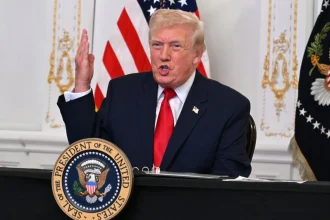Minister of Communications, Innovation, and Digital Economy, Bosun Tijani, has announced plans for a nationwide fibre optic cable rollout, with an estimated cost of $2 billion.
The project, prioritized by the Ministry and the Nigerian Communication Commission (NCC), aims to significantly improve the quality of communication services across the country.
Currently, Nigeria has roughly 35,000 kilometers of fibre optic cables, falling short of the 95,000 kilometers needed for complete coverage.
“I understand, as a minister, that if we prioritize fibre optic cables in this country, the quality of service, whether it’s through your normal mobile telephone or the internet service you use at home, is going to go off the roof, and that’s the commitment I’m also making.
“In the next four years, we are going to do everything to increase the kilometres of fibre optic cables in Nigeria. We are about 35, 000 kilometres away, and we need to go to 95,000 kilometres, almost halfway there.
“It’s going to cost roughly $1.5 to $2 billion to wire the whole of Nigeria to reach that 95, 000.
“We hope we can accelerate in the next 6 to 12 months, secure that funding that private companies can tap into—it’s not government money—and hopefully work with serious companies that can lay fibre over the next two to three years.
“We’re hoping that before the first four years of this administration, a significant portion of that 95, 000 kilometres will be covered,” he said.
He outlined the government’s commitment to bridging the gap within the next four years, emphasizing partnerships with private companies to secure the necessary funding.
Furthermore, the Minister acknowledged the need for improved infrastructure to support the existing 5G network, currently limited by uneven coverage due to inadequate support structures.
“The infrastructure that drives 5G is not nationwide,” Tijani explained. “While it exists in some locations, poor infrastructure in others leads to dropped quality.”
He assured that 5G is operational in Nigeria, with licenses granted to specific telcos, but stressed the importance of addressing infrastructural limitations for wider accessibility and optimal performance.











